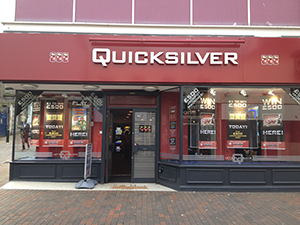The UK adult gaming centre market faces several key challenges, but operator Talarius is working hard to overcome them, writes Simon Liddle.

THE availability of high-stakes gaming machines in licensed betting offices has created inequality, both in terms of regulation and competition, within the UK street gaming market. For Peter Harvey, chief operating officer of the UK’s largest adult gaming centre operator, Talarius, it is a challenge that the business is working hard to overcome.
Talarius was originally established as part of bookmaker Ladbrokes many decades ago and was later owned by the Rank Group and Marwyn Partners before being briefly listed on the AIM stock exchange. In 2007, it was taken over by a joint venture between Australian gaming giant Tatts Group and Macquarie Bank.
In 2007, said Harvey, a “perfect storm” hit the business. “We were, like the rest of the leisure industry, affected by the smoking ban and also the wider credit crunch and recession, which affected the amount of spend that customers had available,” he said. “In addition, the Gambling Act came into force in 2007 and restricted our business. It reduced the maximum stake we could offer customers to £1 (though this has now returned to £2), while simultaneously offering betting shops around our venues a wider choice of machines with more varied stakes.”
These factors combined saw the company’s revenue drop by 35 per cent in 2008, which prompted Macquarie Bank to withdraw its investment and Tatts Group to acquire 100 per cent of the business. The second phase of the business’ history, then, can be mostly aptly described as the “turnaround phase.” It was not without its casualties. When Harvey joined the business in 2007 as chief financial officer as part of this process, one of his first jobs was to close 50 loss-making venues. Upon becoming chief operating officer, he turned his attention to driving performance through investing in the company’s people.
Read the full article in the February issue of InterGame

